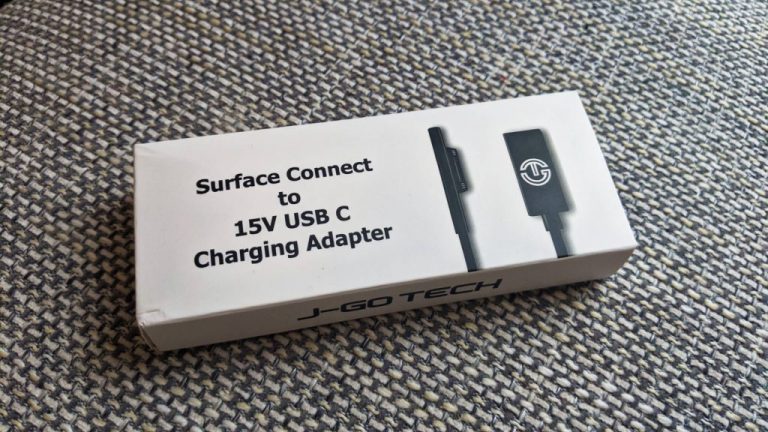Last year, I discovered (and reviewed) a fantastic third-party cable that allowed you to charge your Surface devices via USB-C. It was the J-Go Tech Surface Connect cable.
J-Go Tech, an American portable charging solutions startup, has now launched a unique Surface Connect to USB-C Adapter that converts the proprietary Microsoft Surface Connect port used for charging to USB-C power delivery with a regular USB-C cable.
Note that, the adapter doesn’t support data transfer or video, and hence can only be used for charging your Surface.
Before you go ahead and place an order for the adapter, make sure you have a compatible wall charger or power bank. The power source must output 45W and support 15V/3A power delivery output via USB-C. You may experience insufficient power if your USB-C power source is not equal to or greater than your original charger.
You can check the compatibility of your wall charger or power bank by connecting with the manufacturer or if you’re in the market for the same, you can buy a compatible one from them – I’ve been using J-Go Tech’s XCOREsion, a 45W USB-C PD power bank with 15,000mAh capacity. It’s available for $69.99 here. They also have a 65W power bank as well as a 45W wall adapter. You’d, of course, also need a cable with USB-C connector on both ends of the cable.
The adapter does not work with Surface RT and Surface Pro 1/2, but supports all other Microsoft Surface devices – Surface Go, Surface Pro 3/4/5/6, Surface Laptop, and Surface Book 1/2.
The J-Go Tech Surface Connect to USB-C Adapter is priced at $24.99 and available here. The product comes with a 12-month warranty. J-Go Tech claims that the adapter has built-in overcharge and overload protection.
For a month now, I’ve been exclusively using this adapter with my Google Pixel Type-C charging cable to charge my Surface Pro when I’m traveling. Until Microsoft warms up to Type-C, this is the next best thing.



